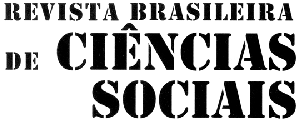This article deals with a particular kind of work organization, the so-called "production cells" model, and discuss the macrosocial context where they have grown in the industry sector. It presents the results of a fieldwork carried out within two plants in clothing manufacturing branches in the surroundings of São Paulo City. Its main purpose is to reinterpret some judgments concerning multi-tasking, skills and flexibility due to the administrative and management rationale in contrast to the ones coming from the sewing workers themselves. The cherishing point of the model - the self regulation by the group - is at the same time the moment where the less productive member is expelled from the cell group. That contradictory crossing of opposite strains is highlighted by the paper so as to emphasize the problematic quest for solidarity in terms of social class's scheme. The erosion of classical institutions for collective action - especially the ones related to capital and labor conflict - is assumed to grow in the tracks of that new model of work organization, to which we have to add also other aspects, such as the payment system, training and qualification requirements. In the end, the article points out that the individualization mood issued from production cells is hardly compatible with the typical stressing on 'social question' raised by the modern times.
Work organization; Post-Fordism; Flexibility; Production cells manufacturing
